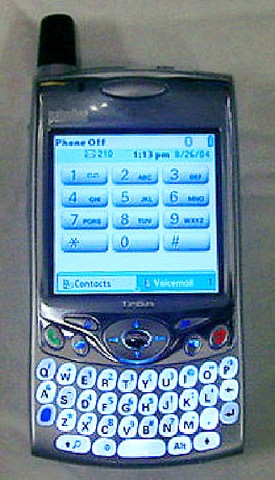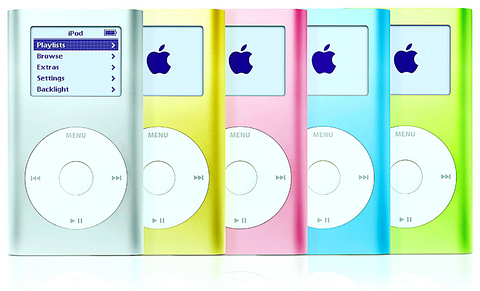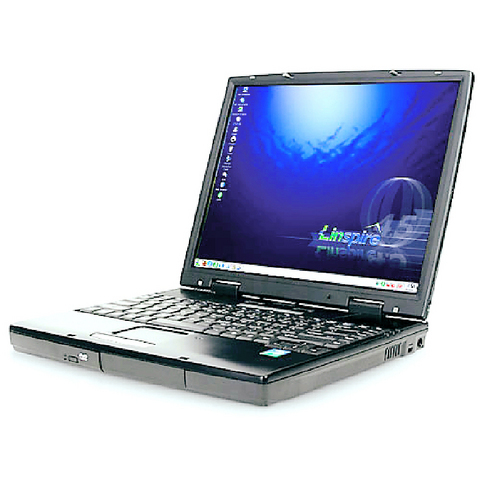With the year's end comes the traditional sleigh-full of "best of" news pieces covering all variety of subjects. Our monthly technology review annually offers the same, but this is more of a technology "milestones" of the year -- a quick look at some of the gadgets and gismos and technologies that have touched our lives and may change our lifestyles.
My pick for gadget of the year would have to be Apple's iPod and iPod mini. It didn't come out this year, but by the beginning of December more than 9 million iPods were sold and most industry-watchers believed that number was going to far exceed 10 million by Christmas morning. What's more, these sleek devices have sparked a war among electronics manufacturers and rightfully had many of them rethinking the clunky space-junk design of many consumer electronics products. People are willing to pay more for wearable devices that don't look like something of Battlestar Galactica. Soon enough, we won't necessarily pay a premium for elegant design as manufacturers compete for the space in our pockets.

But the real revolution Apple has created isn't in the way we carry music, but the way we purchase it. Apple announced earlier this month that their iTunes music store customers have now downloaded over 200 million songs (They were at the 150 million-song mark in mid-October!). Some industry watchers have gone so far to say that if the company's star continues rising at its current rate, it may well sell 1 billion songs by the end of next year.

The company refuses to say how many users iTunes has, but the numbers are still significant. Apple has changed the way we buy music and, for musicians whose catalogs are available for download, significantly reduced the amount of money lost to pirating. My prediction is that, as bit rates gain speed, the next business to move to the Internet will be the neighborhood video store. (Hello, Blockbuster?)
Speaking of downloading from the Internet, 2004 was surely the year the world became wireless, or at least began making huge strides toward becoming so.

While there's no data available as to exactly how much area became covered with Wi-Fi networks this year, based on sales of Wi-Fi hubs, it's believed that overall coverage has grown exponentially more than any previous year. Airports, hotels, cafes and now even homes are going wireless as the price of the technology has dropped. More significantly, whole cities are planning wireless access areas (including Taipei's Shinyi District). Where not long ago people would have to search for a wireless access environment, they're now more likely to be sitting in one already.
As the virtual world has expanded, so has the world of materials. A Virginia-based company called NanoSonic has solved what could be described as the materials chemists' version of the riddle of the Sphinx: What material can conduct electricity like a metal, but stretch like a rubber band?
The answer, of course, is Metal Rubber, a filmy brown material that can extend to three times its original length and conduct electricity as well as a bar of steel. Already Lockheed Martin is using it to create airplane wings with more flex, but scientists believe it could have applications in medicine -- artificial muscles, for example, or more life-like prostheses. On a larger scale consumer basis, we may begin seeing cellphones and laptops that bounce when dropped.
A feature like that would come in handy if you dropped your NT$16,065 Treo 650, my pick for the phone of year. Though it's not a popular model in Taiwan, it's manufactured here by a company called High Tech Computer. In other parts of the world, though, it's taken the bull by the horns, combining a personal digital assistant, telephone, camera and more. The 650, which runs on a Palm operating system, is the upgrade of the Treo 600. But as upgrades go, the 650 is twice the phone the 600 was: twice the screen resolution (320 x 320 from 160 x 160), twice the speed (312Mhz from 144Mhz), and more than twice the photo resolution (1.2 megapixels from 0.3 megapixels).
The 650 also incorporates Bluetooth to make it a truer networking device, though Wi-Fi is noticeably absent. Still, it raises the bar on PDA-cellphone technology, setting the standard by which other manufacturers will inevitably compare their own products.
Already not far behind is another Taiwan-manufactured phone, Benq's P50, which, because it's lighter and smaller than the Treo and foregoes the nubby antenna, would win on style points. But the phone is still too new and untested to give it top honors here.
While it may not be a great feat of technology, it remains a milestone: Wal-Mart Corp has begun offering the Balance Notebook computer, a Linux-based laptop selling at NT$16,000. For that price you get a 14.1" LCD screen, VIA C3 processor, 128MB of RAM, a 30GB hard drive and CD-ROM. No bells and whistles, to be sure, but enough to run most productivity software, Web browsing, e-mail and the like. Kudos to Wal-Mart for saving consumers NT$3,213 by installing Linux.

Growing up in a rural, religious community in western Canada, Kyle McCarthy loved hockey, but once he came out at 19, he quit, convinced being openly gay and an active player was untenable. So the 32-year-old says he is “very surprised” by the runaway success of Heated Rivalry, a Canadian-made series about the romance between two closeted gay players in a sport that has historically made gay men feel unwelcome. Ben Baby, the 43-year-old commissioner of the Toronto Gay Hockey Association (TGHA), calls the success of the show — which has catapulted its young lead actors to stardom -- “shocking,” and says

The 2018 nine-in-one local elections were a wild ride that no one saw coming. Entering that year, the Chinese Nationalist Party (KMT) was demoralized and in disarray — and fearing an existential crisis. By the end of the year, the party was riding high and swept most of the country in a landslide, including toppling the Democratic Progressive Party (DPP) in their Kaohsiung stronghold. Could something like that happen again on the DPP side in this year’s nine-in-one elections? The short answer is not exactly; the conditions were very specific. However, it does illustrate how swiftly every assumption early in an

Inside an ordinary-looking townhouse on a narrow road in central Kaohsiung, Tsai A-li (蔡阿李) raised her three children alone for 15 years. As far as the children knew, their father was away working in the US. They were kept in the dark for as long as possible by their mother, for the truth was perhaps too sad and unjust for their young minds to bear. The family home of White Terror victim Ko Chi-hua (柯旗化) is now open to the public. Admission is free and it is just a short walk from the Kaohsiung train station. Walk two blocks south along Jhongshan

Francis William White, an Englishman who late in the 1860s served as Commissioner of the Imperial Customs Service in Tainan, published the tale of a jaunt he took one winter in 1868: A visit to the interior of south Formosa (1870). White’s journey took him into the mountains, where he mused on the difficult terrain and the ease with which his little group could be ambushed in the crags and dense vegetation. At one point he stays at the house of a local near a stream on the border of indigenous territory: “Their matchlocks, which were kept in excellent order,